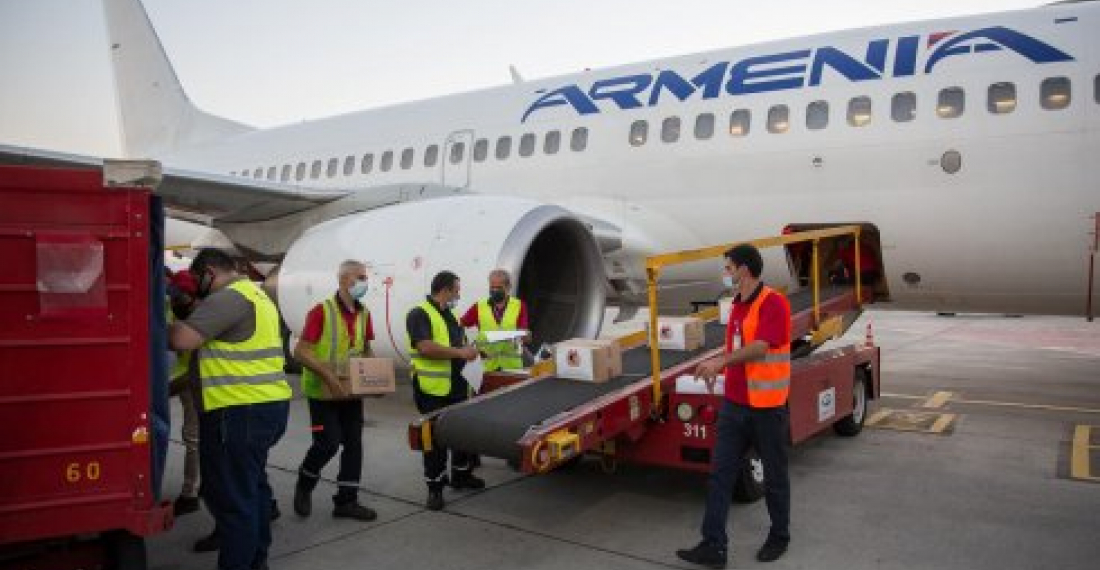The first of three planes to deliver Armenian humanitarian aid to disaster stricken Lebanon left Zvarnots Airport in Yerevan on Saturday (8 August) for Beirut.
There has been shock in Armenia at the news of the huge explosion in the Lebanese capital last week which left many injured and dead. It is understood that up to thirteen people of Armenian descent were killed in the explosion. Lebanon is the home of a large and thriving Armenian community which maintains close relations with the home country.
Earlier it was announced that Azerbaijan had given USD 1 million to Lebanon as part of emergency support. In Azerbaijan there has however been disquiet at reports in the media that some Armenians from Lebanon have now requested to be relocated to Nagorno Karabakh. These reports could not be confirmed.
source: commonspace.eu with agencies
photo: Humanitarian aid destined for disaster striken Beirut being loaded on Armenian Airways plane at Zvarnots International Airport (picture courtesy of Armenian Public Radio)







